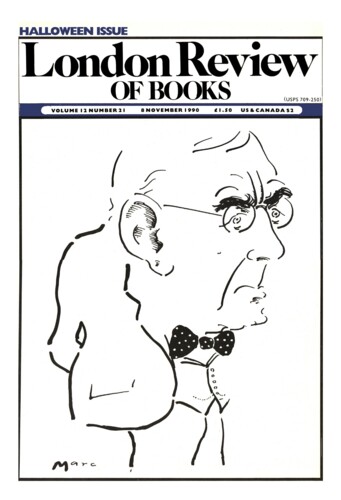Re-reading the Bible
Stephanie West, 12 March 1992
Though the Bible continues to retain its supremacy as a best-seller (see the Guinness Book of Records for 1992), it is hard to avoid the impression that its contents are increasingly unfamiliar, and while the issues raised (or apparently raised) by the Dead Sea Scrolls or the Turin Shroud generate extensive discussion, the text which gives these objects more than a narrow specialist interest goes largely unread. No doubt this neglect is partly to be explained by the increasing secularisation of society and by the widespread replacement of divinity in the school timetable by a pick-’n’-mix survey of comparative religion. But we must also reckon with the deterrent effects of a general awareness that, one way and another, science and scholarship have shown that much of the Bible is not what it was long thought to be, that demythologisation and source criticism, archaeology and stylometrics, have produced results of which we ought to take account. From this springs a want of confidence in our capacity to read the text intelligently, while those who are readiest to offer guidance too often appear to lack objectivity. Anyone who has felt disheartened by what sometimes looks like a complacent collusion in ignoring difficulties will welcome The Unauthorised Version, which makes accessible a complex mass of modern Biblical scholarship and addresses incisively a wide range of questions which occur (or should have occurred) to any intelligent reader.


